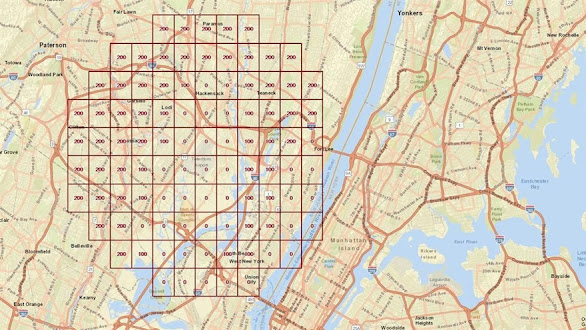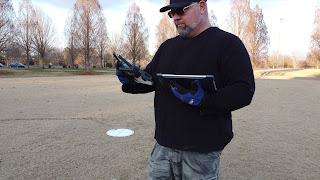Why I Don't Recommend LAANC - 003 (Updated July 23, 2023)
What is LAANC and how does it work? As you know, airspace that is controlled by Air Traffic Control (ATC), Class B, C, D and sometimes surface based E airspace requires ATC approval. Approvals in the past were not efficient thus a new system called LAANC was developed to give drone pilots quicker and more extensive access to controlled airspace. To illustrate, think of the inner circle of controlled airspace, an oil barrel shaped chunk of real estate that protects the center of the airport from the surface to typically 5 Nautical Miles (NM) outward. LAANC expands access to the inner cylinder via a grid system of progressively lower altitudes as it nears the airport, with the immediate airport protected to the Surface (SFC). Use of the analogy of a funnel and how it tapers towards the center and you will better understand how the grid system works.
On a recent drone mission I had requested permission to fly in the area my customer had designated but when onsite he mentioned the actual site was a mile down the street. The mile down the street was unfortunately closer to Class C airspace and outside of the grid we requested to gain permission. As a result, we scrambled to cancel the original request to resubmit for the new location, which fortunately still allowed for immediate approval.
The good news with LAANC is that you can simply put in the address of the flight and it will locate you on the appropriate position on the aeronautical chart. I know many of you have third party programs that do this automatically, but if you don’t it’s a matter of juggling online street maps with aeronautical charts to get a pinpoint location. Regardless, it’s always a good practice to determine the accurate location well ahead of time to ensure there are no surprises with the airspace. By the way, there’s an option to select a hobbyist or a commercial option on LAANC.
So, the question of the day is why don’t I recommend LAANC to every drone pilot? Honestly I’m not totally against using it but am concerned about new pilots delving into LAANC without a lot of experience. Flying in ATC controlled airspace, in my humble opinion, ranks higher on the list of complexity and as a result should be entered into progressively. Once a baseline of experience is gained I would get with an experienced pilot to work through a few missions. Some might say this is too cautious of a perspective citing that the LAANC program is no big deal, and for a small percentage of new drone pilots I will agree, however we are talking about the average new pilot. I’m interested in your thoughts on the topic so please leave a comment.
Update: Some LAANC providers are getting out of the LAANC business, see the current list of FAA approved providers and learn more about LAANC at: https://www.faa.gov/uas/getting_started/laanc
TC Freeman is the Chief Instructor for the RemotePilotAssociation.com (RPA) and has a passion for helping recreational and commercial drone pilots learn to fly and earn FAA commercial Remote drone Pilot certification through live, hybrid or self-study courses.
Join us for our annual JUNE-JULY New Membership “OPEN HOUSE,” a FREE-no obligation bi-weekly webinar where we discuss drone business, certification and re-currency. Email us to RSVP.
Reference: FAA’S LAANC COMPLIANCE RATE IS ONLY 20 TO 30 PERCENT, ACCORDING TO ALOFT STUDY, November 14, 2022, Haye Kesteloo, https://dronexl.co/2022/11/14/faa-laanc-compliance-rate-low-aloft/
#drone, #dronephotography, #dji



Comments
Post a Comment